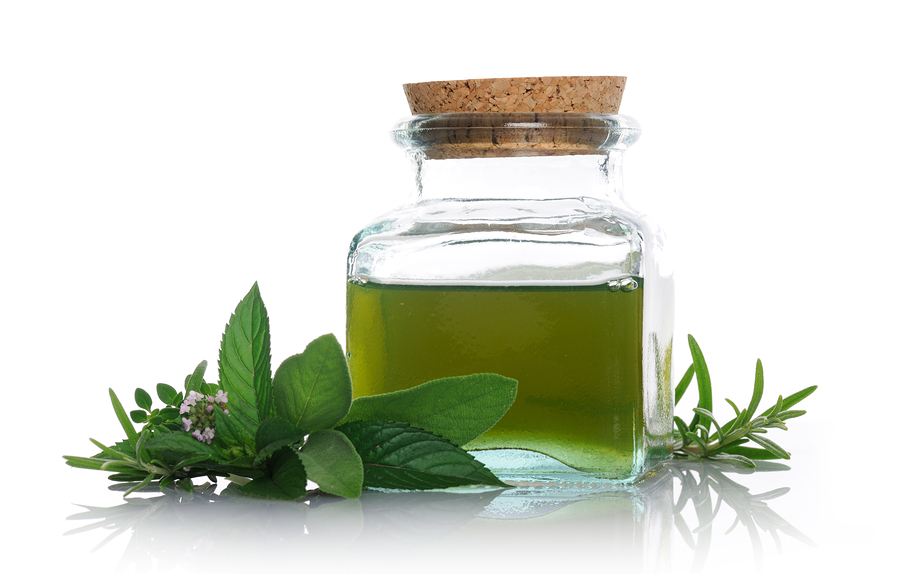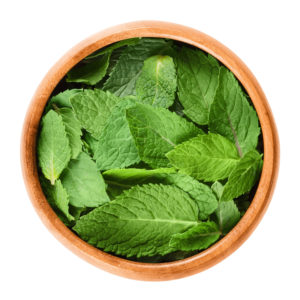
What is Peppermint?
 Peppermint is actually a cross between spearmint and water mint and is one of the 25 species of mints. Spearmint and peppermint are the most commonly used. You would be surprised to know what other foods belong to the mint family, can you guess? They include basil, oregano, rosemary, sage, spearmint, thyme, peppermint, marjoram and lemon balm and each have their own unique flavours and health benefits.
Peppermint is actually a cross between spearmint and water mint and is one of the 25 species of mints. Spearmint and peppermint are the most commonly used. You would be surprised to know what other foods belong to the mint family, can you guess? They include basil, oregano, rosemary, sage, spearmint, thyme, peppermint, marjoram and lemon balm and each have their own unique flavours and health benefits.
The English may believe they created mint sauce, but in fact the Romans took mint and mint sauce to Britain. Aside from countries in the meditteranean, where peppermint originates, the oldest known use of it is by the Japanese who have distilled peppermint oil for centuries.
Under the Spotlight
Peppermint contains:
- A phenolic acid called rosmarinic acid
- A compound called perillyl alcohol
- Menthol and menthone
- Flavonoids (antioxidants in layterms)
Benefits to Your Health
Where do we start?! There are so many benefits to peppermint and its oil.
- Like other aromatic herbs, peppermint has been mainly used as a digestant (to help you digest food) and a carminative (to reduce gas)
- It prevents irritation in topical creams for rheumatic pain, headache and toothache
- It relieves itching from insect bites, dry skin and poison ivy
- May be useful in Irritable Bowel Syndrome (IBS) as it relieves the painful spasms and pain due to the menthol
- As a decongestant, the menthol also may help relieve allergic rhinitis, or hayfever
- Studies on animals have shown peppermint to stimulate bile, which helps us digest fats
- Peppermint may help prevent or deal with colds as it has antiviral activity as well due to the rosmarinic acid
- Cancer inhibiting properties are found in the perillyl alcohol and may prevent formation of cancer
- It freshens bad breath
- Helps clear the respiratory tract, especially when combined with eucalyptus, tea tree or thyme for congestion or cough
- May also help relieve insomnia, tension headaches or stress if combined in a tea with lemon balm (also part of the mint family), chamomile or linden flower
- Could it also help with stimulating hair follicles or soothing an irritated scalp?
Start Now!
- Sip peppermint tea made from dried or fresh herb after meals to aid digestion (you can take 3 stalks of fresh peppermint per person or 1 tablespoon of dried herb in a cup of hot water)
- Add it to chamomile or lemon balm for a drink to sip in the hour before bed as it helps relieve stress and aids sleep
- Add diced peppermint to salads to give it a fresh, sharp taste (4 tbsp, 1 thinly sliced fennel, 1/2 a chopped orange and a chopped, cooked beet for example)
- Add chopped mint to salads, asparagus or marinated vegetables and then squeeze a bit of lime on top
- Chop mint and add it to icecube trays for a beautiful addition to any drink
- If you have a fresh stalk of mint you can plant it directly into a pot of soil and it will grow roots; it spreads underground (by rhizomes, or underground roots…see here for other rhizomes) so if you choose a larger pot it will spread with time. Water it when the soil feels dry (when you stick a finger in up to the first knuckle) and enjoy!
Recipe Challenge
Join our Recipe Challenge and make a recipe from this and the other three Veggies of the Week in this month. We’ll be choosing a recipe randomly and turning it into a video. Find out more here!
Have a look at last week’s Veggie of the Week.




Comment
[…] Have a look at last week’s Veggie of the Week. […]